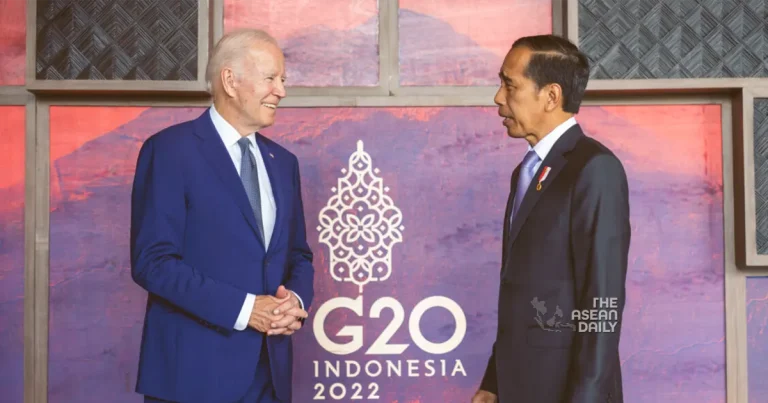13-11-2023 (WASHINGTON) The United States and Indonesia are set to engage in discussions on Monday to explore the possibilities of a minerals partnership, with a particular emphasis on fostering the trade of nickel, a key metal for electric vehicle (EV) batteries. Sources with direct knowledge of the conversations revealed that the talks will revolve around potential steps that could lead to formal negotiations on this strategic partnership.
The crucial meeting is scheduled to take place as Indonesian President Joko Widodo visits the White House for discussions with U.S. President Joe Biden. The Biden administration is closely scrutinizing environmental, social, and governance standards in Indonesia, and deliberations on how the partnership might operate are underway, according to insider information.
One source mentioned, “There’s a lot of work to do before we are able to formally announce negotiations on a critical minerals partnership.” The administration plans to consult further with U.S. lawmakers and labor groups in the coming weeks, indicating a thorough examination of the potential partnership’s implications.
The White House has not yet responded to requests for comments on the matter.
Indonesia, boasting the world’s largest nickel ore reserves, initiated discussions in September, urging the United States to consider a trade deal for critical minerals. This would enable exports from Indonesia to fall under the U.S. Inflation Reduction Act (IRA). While a significant portion of Indonesia’s nickel is presently processed into crude metal, the government is eager to establish an EV supply chain utilizing its extensive nickel reserves, which can be refined into battery materials.
Environmental impact considerations are at the forefront of the Biden administration’s discussions, with a focus on ensuring that any potential nickel supply adheres to stringent environmental standards. Sources have emphasized the administration’s commitment to minimizing the environmental impact associated with nickel production.
Despite promising momentum, insiders caution that there is substantial work ahead. Indonesia’s nickel mining has faced criticism for its environmental consequences, including deforestation and water pollution.
In line with U.S. guidelines issued in March, the Biden administration stipulates that a certain percentage of critical minerals in EV batteries must be produced or assembled in North America or a free trade partner for eligible tax credits. Given that Indonesia lacks a free trade agreement with the United States, discussions are likely to address this gap.
Furthermore, the administration is exploring ways to distinguish nickel extracted from Indonesia but processed in China, ensuring it does not qualify for IRA credits. The global market value for the nickel industry is estimated at $33.5 billion in 2022, though the market faces oversupply challenges.
As the U.S. aims to lead in EV manufacturing, discussions around securing a nickel supply become crucial, especially with the impending closure of the only U.S. nickel mine in a few years and the absence of a nickel smelter. Last year, the government allocated nearly $115 million to Talon Metals to support a nickel processing plant in North Dakota, contributing to Tesla Inc’s supply chain.
However, domestic miners have urged the Biden administration to prioritize approving domestic projects over seeking international supply, emphasizing the importance of fostering domestic resources for EV production.




